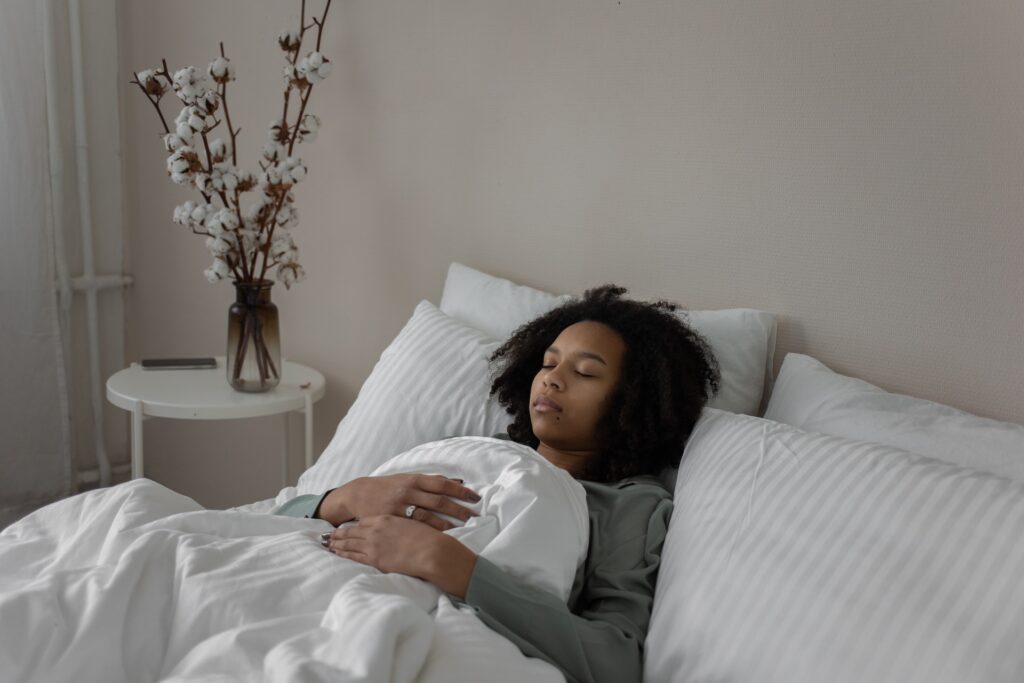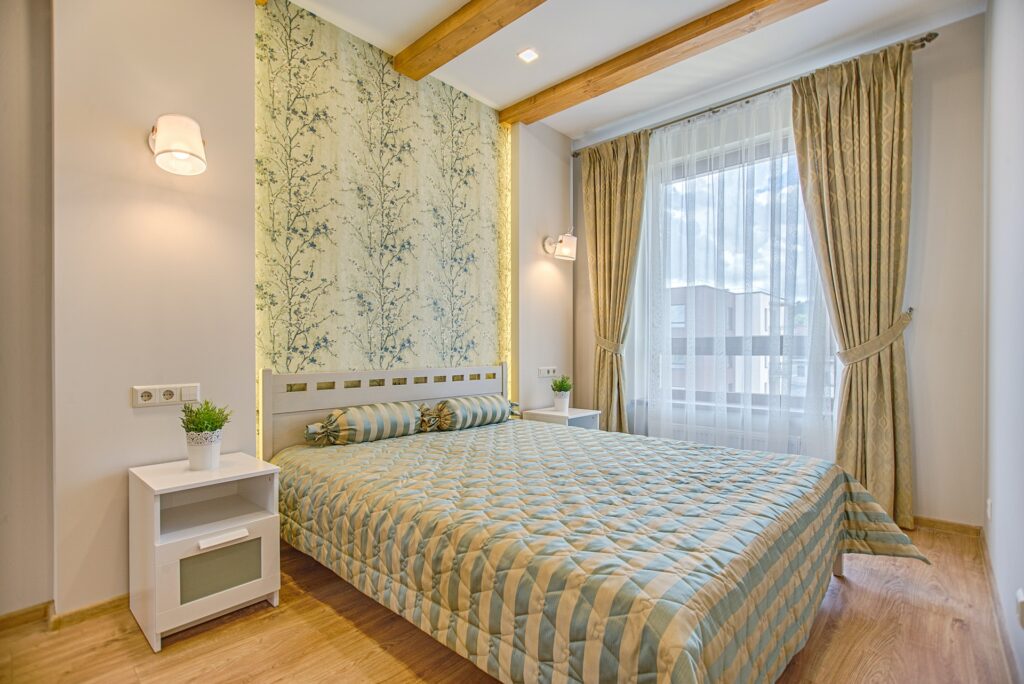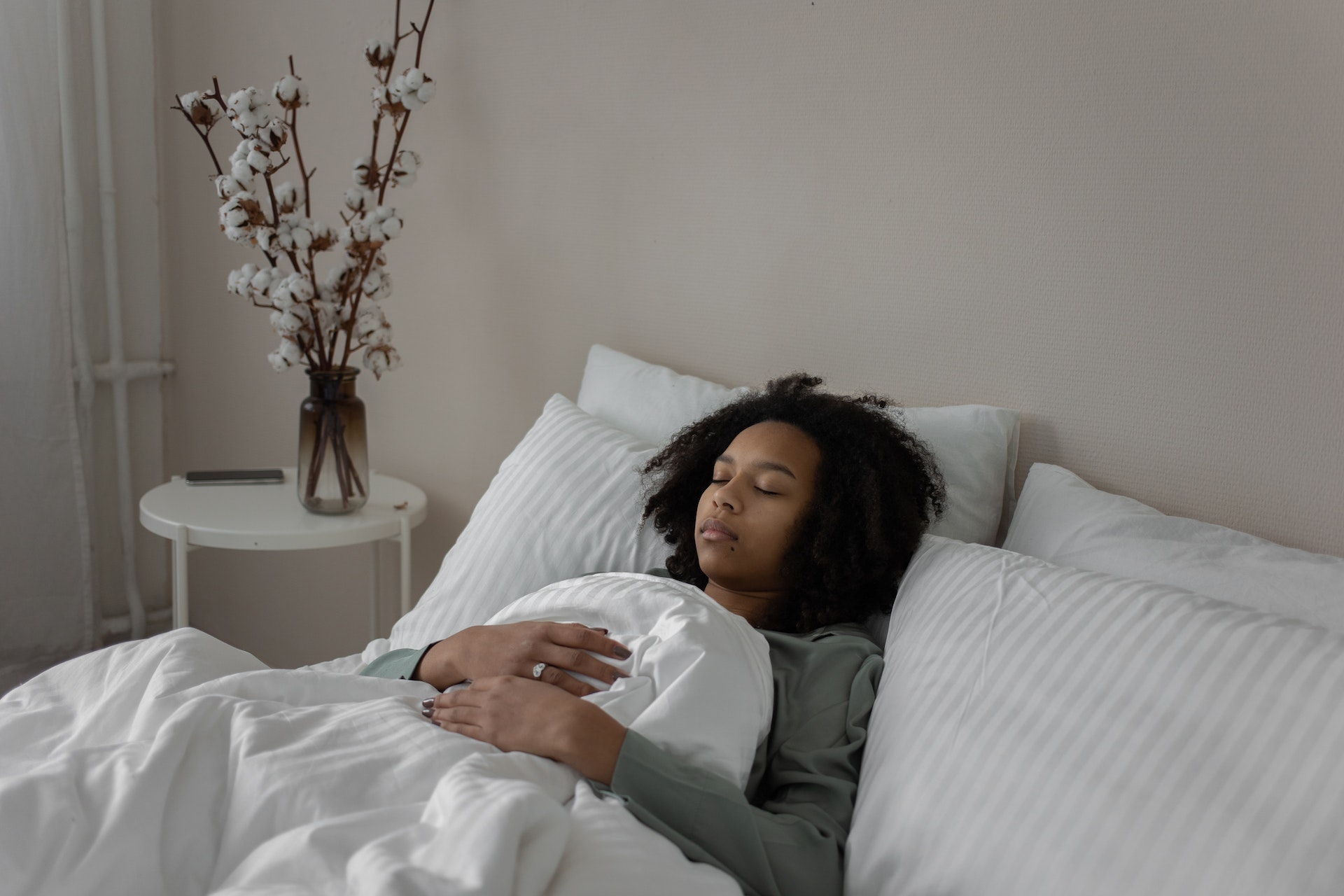Studies show that 10% to 30% of adults experience insomnia, with stress and poor sleeping habits being the major causes. Creating an ideal sleeping environment can help people battling insomnia to improve their sleep quality and overall health. A relaxing bedroom can make it easier to fall asleep and stay asleep throughout the night while regulating the body’s natural sleep-wake cycle, leading to better sleep. It also reduces stress and promotes relaxation, which is important for overall health and well-being. So, if you struggle to sleep, use these tips to create an ideal sleeping environment.
1. Create a bedtime routine

Creating an ideal sleeping environment isn’t only about your bedroom design or setup; it’s also about your activities right before bedtime. Establishing a relaxing bedtime routine can signal your body that it’s time to wind down and prepare for sleep. Such activities help to ease the body and create a calming effect, making it easier to fall asleep. Such activities may include reading, taking a warm bath, stretching, sipping a warm glass of tea or milk, etc. And if you’re into THC products, you can also consider snacking on things like Delta 9 THC gummies. Studies show that THC products have therapeutic benefits that can help improve sleep, so keep this in mind.
2. Keep your bedroom dark, cool, quiet, and free of clutter
Use heavy curtains or blinds to block light and a white noise machine or earplugs to drown out any external noise. A cool room (between 60 and 67 degrees Fahrenheit) can also help you sleep more soundly, so feel free to consider this. It also helps to keep your bedroom space as clean and clutter-free as possible. Studies show that a messy and cluttered bedroom can be a source of stress and distraction, which can interfere with sleep. Make an effort to keep your bedroom clean and organized to create a more peaceful sleep environment.
3. Invest in a comfortable mattress, pillows, and bedding
A supportive and comfortable bed can make a big difference in your sleep quality. Consider investing in a high-quality mattress and pillows tailored to your individual needs and preferences. Also, invest in comfortable bedding; choose soft, smooth, breathable sheets, blankets, and comforters to create a comfortable and inviting sleep environment. Consider using natural materials like cotton or linen for a more comfortable and healthy sleep experience. And don’t forget to wear comfortable pajamas and sleepwear, as they can help you sleep more soundly. Leverage clothing made from natural materials like cotton or linen to help regulate your body temperature and keep you comfortable throughout the night.
4. Avoid screens before bed
The blue light emitted by screens (such as TVs, laptops, and phones) can disrupt the production of the sleep hormone known as melatonin, making it harder to fall asleep. So, it’s best to stay away from all screens for at least an hour before bedtime. Of course, you can enjoy your favorite relaxing TV shows before bedtime, which can help improve your sleep, but you don’t want to keep your TV on once you’re in bed. Additionally, experts advise against surfing social media platforms at bedtime. Some studies reveal a connection between active social media usage and dissatisfaction. Such feelings negatively affect mood and worsen stress, making it harder to sleep.
5. Use a consistent sleep schedule
Going to bed and waking up at a specific time every day can help regulate your body’s natural sleep-wake cycle and improve your sleep quality. When you hit your bedroom consistently and wake up at the same time every day, your body becomes accustomed to this schedule, and it becomes easier to fall asleep and stay that way for several hours. A consistent sleep schedule ensures you get the recommended amount of sleep for your age and lifestyle.
6. Keep the bedroom cool and well-ventilated

A cool, well-ventilated bedroom can help regulate your body temperature and create a more comfortable sleep environment. Consider using a fan or keeping a window open to promote airflow. But if your bedroom environment is too dry, try adding a dehumidifier to make breathing easier. Aside from using a dehumidifier, some people find that using essential oils or other natural remedies, such as a white noise machine, can help create a more relaxing sleep environment. But you can experiment with different products to find what works best for you. You can even try aromatherapy, as experts claim that fragrances like lavender may help improve sleep, so keep this in mind.
Keep up with Project Fairytale








